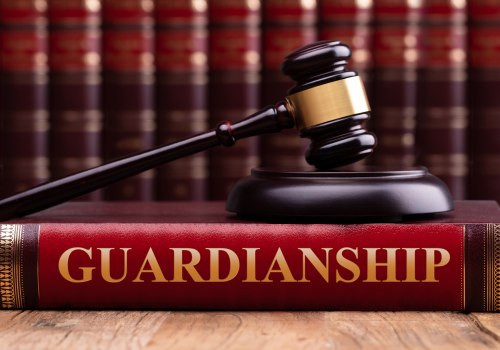A guardianship decision by the courts will eliminate the rights of the allegedly incapacitated person and the de facto lawyer, assigning responsibility for making decisions to the legal guardian. However, until that time, the person allegedly incapacitated retains all rights, even to make bad decisions. If an appropriate, less restrictive alternative is not available, the court may appoint a guardian for a person who can no longer care for their person or property. A person who has a court-appointed guardian may not be able to legally enforce a power of attorney.
If an agent discovers that a guardian was appointed prior to the date the principal signed the power of attorney, the agent must notify an attorney. If a guardianship proceeding is initiated after the principal has signed the power of attorney, the authority of the agent of certain persons is automatically suspended until the petition is dismissed, withdrawn, or otherwise acted upon. The law requires an agent to receive notice of the guardianship procedure. However, the power to make health care decisions is not suspended unless the court specifically suspends this power.
If the agent learns that guardianship or disability proceedings have been initiated, he should immediately consult with an attorney. It's always best to consult an attorney about your legal rights and responsibilities regarding your particular case. When comparing Florida's powers of attorney to guardianship, a POA sets out in writing certain actions that a designated “agent” may take on behalf of the “principal granting the power of attorney.”. The purpose of the affidavit is to release the third party from liability for accepting an invalid power of attorney.
In the document, the author of the power of attorney (the “principal”) grants the right to act on behalf of the creator as that person's agent. The director must understand the effect of a power of attorney, to whom the power of attorney is granted and what assets may be affected by the power of attorney. Similarly, if someone appointed the principal as the trustee of a trust or if the court appointed the principal as a guardian or conservator, the agent cannot assume these responsibilities based solely on the authority of a power of attorney. A third party may also make a reasonable request for an attorney's opinion on any legal matter related to power of attorney, including its proper execution under the laws of another state.
Voluntary guardianship may be established for an adult who, although mentally competent, is unable to manage his or her own estate and who voluntarily requests the appointment. Each option has benefits and drawbacks, but the situation can be complicated when a person who has appointed a person to have a power of attorney has guardianship enacted on their behalf. Taken together, these statutes and rules describe the duties and obligations of guardians and attorneys, as well as the court, to ensure that they act in the best interest of the conservatee, minor, or person who is allegedly incapacitated. Like a power of attorney, a trust can authorize a person (the “trustee”) to act on behalf of the trust creator during their lifetime.
A Florida guardianship lawyer can help you determine if your power of attorney document is sufficient and if you might also need a guardianship. However, there are certain exceptions specified in Florida law when a durable power of attorney cannot be used for an incapacitated principal. Just as power of attorney doesn't take away your rights to make your legal and financial decisions, just because you can't make your own healthcare decisions doesn't mean a guardianship should take place. In general, both guardianship and power of attorney are only necessary when a person becomes incapacitated.
.










